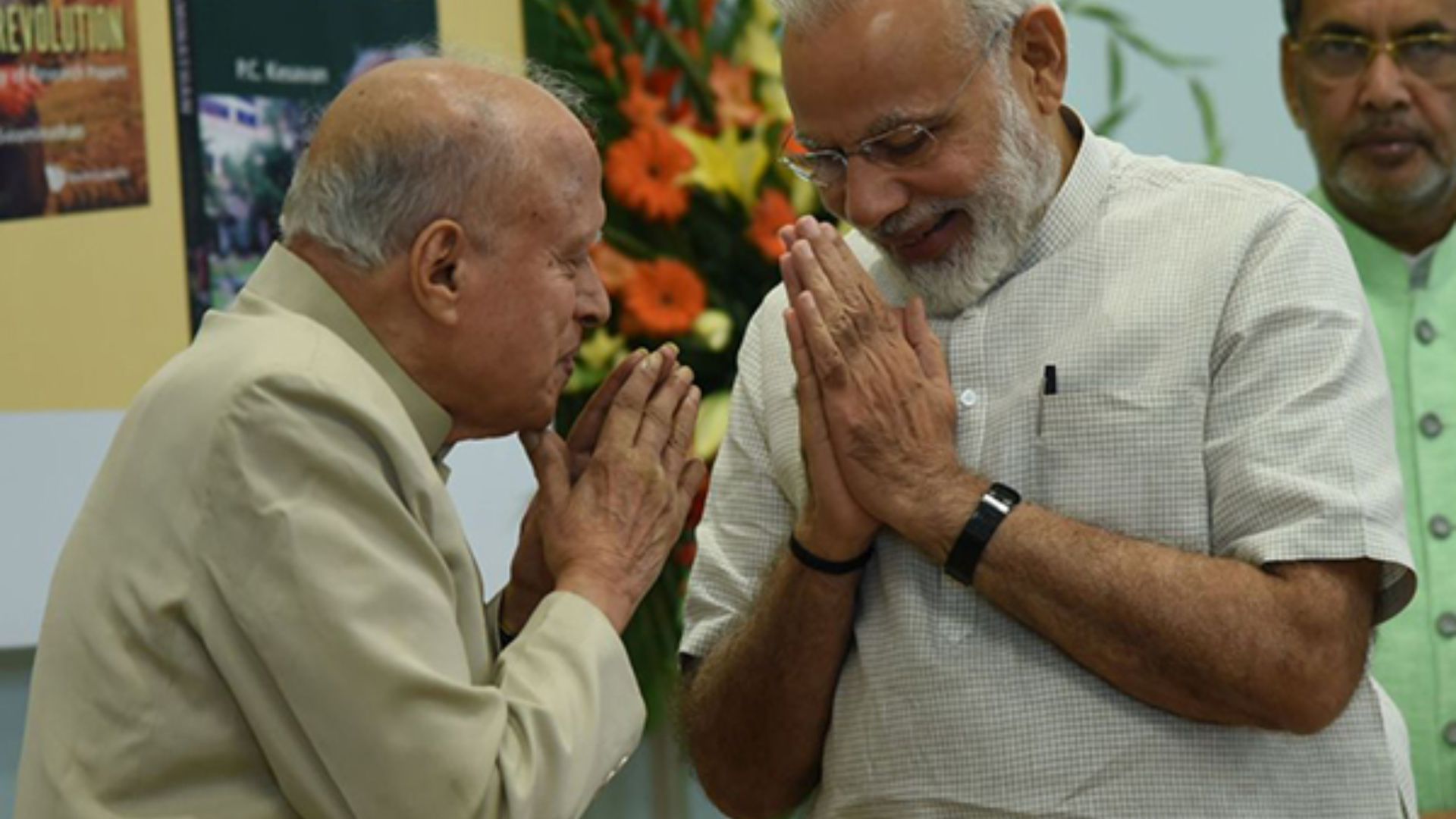The country’s highest civilian honor, the Bharat Ratna, was bestowed upon agricultural scientist MS Swaminathan on Friday. Swaminathan is credited with starting the Indian Green Revolution. The Prime Minister announced that the award will be given posthumously to Swaminathan, a well-known figure in Indian agriculture who is renowned for playing a key role in the country’s “Green Revolution.” Swaminathan passed away at his Chennai home on September 28, 2018, at the age of 98.
Taking to ‘X’ PM Modi, said Swaminathan’s visionary leadership has not only transformed Indian agriculture but also ensured the nation’s food security and prosperity.
“It is a matter of immense joy that the Government of India is conferring the Bharat Ratna on Dr MS Swaminathan, in recognition of his monumental contributions to our nation in agriculture and farmers’ welfare. He played a pivotal role in helping India achieve self-reliance in agriculture during challenging times and made outstanding efforts towards modernizing Indian agriculture. We also recognise his invaluable work as an innovator and mentor and encouraging learning and research among several students. Dr. Swaminathan’s visionary leadership has not only transformed Indian agriculture but also ensured the nation’s food security and prosperity. He was someone I knew closely and l always valued his insights and inputs,” Prime Minister Narendra Modi said in a post on ‘X’.
Swaminathan, who has a background in plant genetics, is known as the scientific head of India’s green revolution movement because of his substantial contributions to the country’s agriculture industry. His contributions have played a significant role in India’s agricultural revival. This esteemed award acknowledges his critical contribution to modernizing and attaining self-reliance in agriculture during difficult times. Mankombu Sambasivan Swaminathan, who was born on August 7, 1925, founded the MS Swaminathan Research Foundation (MSSRF) in Chennai in 1988.
His academic journey began with a B.Sc. degree in Zoology from Maharajas College in Thiruvananthapuram, followed by another BSc in Agricultural Sciences from Coimbatore Agricultural College. He then specialized in genetics and plant breeding, earning an M.Sc. degree in Agricultural Sciences from the Indian Agricultural Research Institute (IARI) in 1949. His academic pursuits took him to the UK, where he obtained a Ph.D. from Cambridge University in 1952.


















